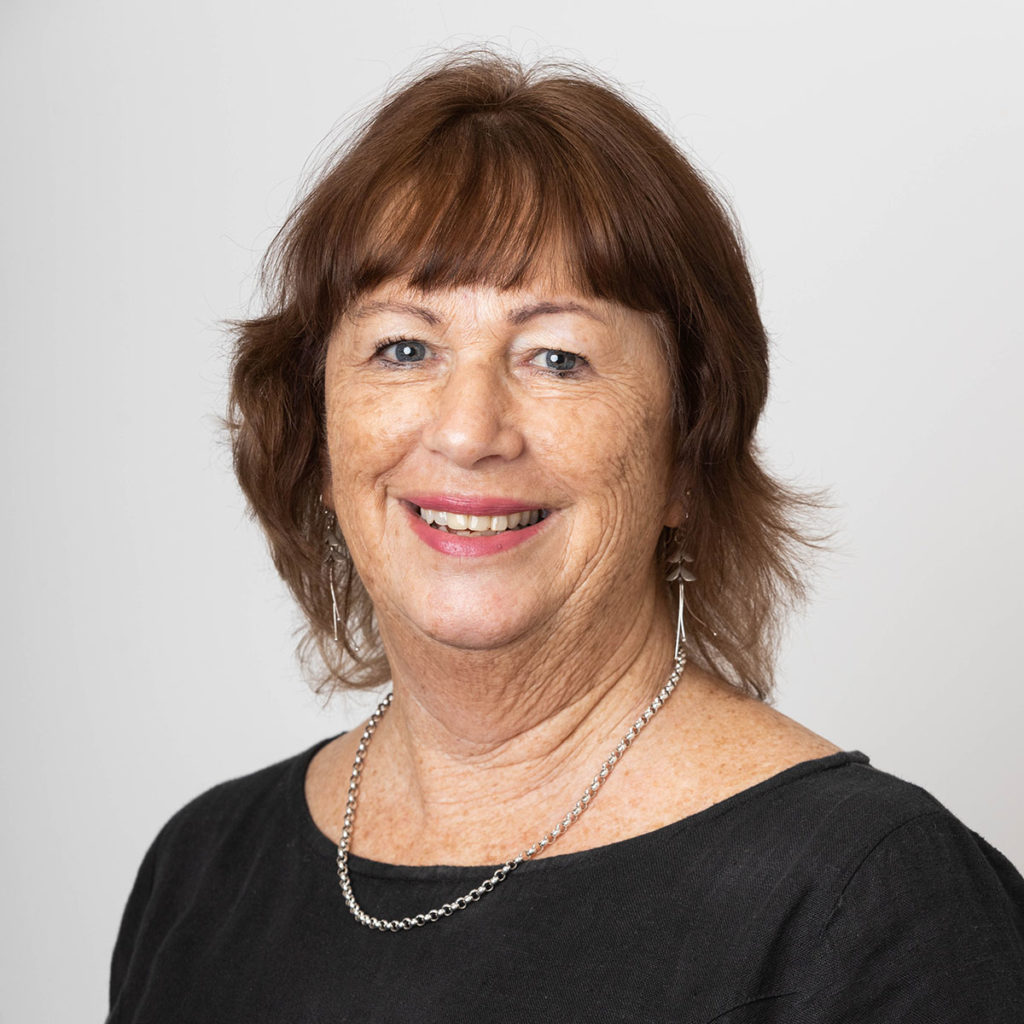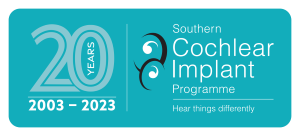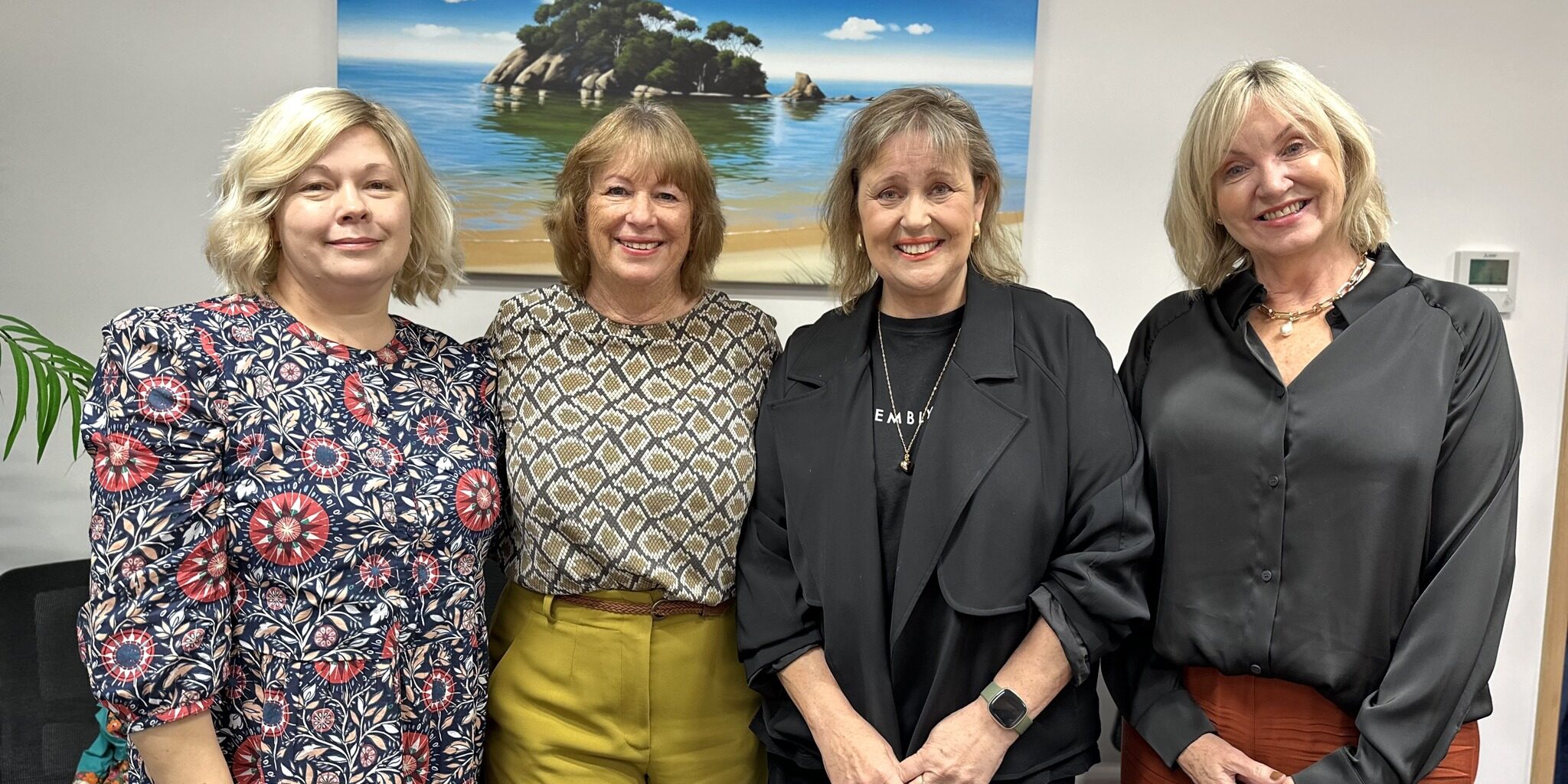Farewell and thank you to long-serving SCIP Clinical Manager Jill Mustard After an interesting and fulfilling career, SCIP’s longest serving employee, Clinical Manager Jill Mustard, is retiring soon.
A mantra Jill has followed in her career, and one she recommends to everyone, is to say “yes” to opportunities that present themselves in life. For her that meant saying yes to study, to working overseas (in Southhampton, England), and to attending and presenting at conferences here and abroad.
 “I hope that people think first of saying yes to a cochlear implant and then yes to whatever other opportunities occur in their future,” Jill says. When SCIP was established in 2003, Jill joined from her role as a habilitationist helping children with cochlear implants in the South Island. Previously, she trained as a speech and language therapist and worked in Tāirawhiti/Gisborne with children with speech and language difficulties, then trained as a Teacher of the Deaf. She worked at Van Asch Deaf Education Centre as a specialist resource teacher for speech and language.
“I hope that people think first of saying yes to a cochlear implant and then yes to whatever other opportunities occur in their future,” Jill says. When SCIP was established in 2003, Jill joined from her role as a habilitationist helping children with cochlear implants in the South Island. Previously, she trained as a speech and language therapist and worked in Tāirawhiti/Gisborne with children with speech and language difficulties, then trained as a Teacher of the Deaf. She worked at Van Asch Deaf Education Centre as a specialist resource teacher for speech and language.
Jill would like to share some milestones she has observed during her 21 years at SCIP, both working with patients in the early years and since she was promoted to the leadership role of clinical manager in 2015 – caring for more than 1,300 patients.
One major long-term goal was combining the paediatric and adult programmes into one service. This decision was hastened after the Canterbury Earthquakes. A major benefit of combining the two programmes in Merivale, Christchurch is the connection and incidental contact that occurs between children and adults in the SCIP waiting room – young children, teenagers and older adults from all walks and stages of life are mixing and sharing their experiences.
“For the parents who are making choices for their children about cochlear implants, those choices are affirmed by the experiences of adults who’ve chosen cochlear implants for themselves. There’s a bit of reassurance when the adults have got great outcomes and are happy with the choice that they’ve made,” Jill says.
“Also, the adults love seeing the kids with cochlear implants, so that’s good for them too.” A second highlight for Jill was the establishment and growth of the Lower Hutt clinic, considering the large geographic area covered by SCIP, this has made SCIP more convenient and accessible for many people, saving them travel time and cost.
The significant, positive impact of newborn hearing screening is another highlight. It has meant children can receive cochlear implants earlier from six months of age. Earlier implantation leads to faster language progress and good language outcomes, improved access to education, and wider life choices, Jill says. Increased funding to finance bilateral implants for children and more adult implantation has played an important role in her work. Technological advances have been advantageous for everybody, she says.
For example, 20 years ago the speech processors were the size of a pack of cards and the children wore them in a customised vest pocket – now they fit behind an ear. “It’s a delight to see adults in clinic who were implanted as young children, flourishing in their careers and life.” An additional highlight for Jill has been collaborating with others in several research projects looking at outcomes for different groups. For example, one research project looked at outcomes for adults in different age groups and found that older adults (75+) had similar outcomes, particularly in quality of life, as other adult age groups. Older age shouldn’t be a deterrent to considering a cochlear implant.

Another study looked at educational and employment outcomes for adults who were implanted as young children and found that a high proportion went on to further study, with the majority (88%) employed either full time, part-time or in casual work. There were a lower number of unemployed cochlear implant recipients than the national census unemployment rate.
A more recent study looked at age at implant and language outcomes and reinforced the message that the most important variable in outcomes is consistent device use from an early age. The mantra is Eyes Open Ears On. SCIP has been a gratifying place to work because the clients and clinicians are all very positive, Jill says. It’s a pleasure to be in a multidisciplinary team that collaborates and values each other’s expertise to work together in the clients’ best interests. There’s also a positive learning environment, which is particularly necessary given the constant technological innovation. “Most of the people who walk through the door are happy and that gives us a really nice, positive vibe in our working environment.”
One of SCIP’s strengths is the habilitation and rehabilitation service provision that isn’t necessarily provided in a joined-up manner internationally, she says. “A cochlear implant is life changing for people – they receive improved access to sound, language, education and life choices. The adults say they are happier. It’s great to be a part of helping people access life-changing technology. I’m proud to be part of this organisation,” Jill says. In her retirement, Jill is planning to spend more time with her grandchildren in New Plymouth and to visit her son in England.

